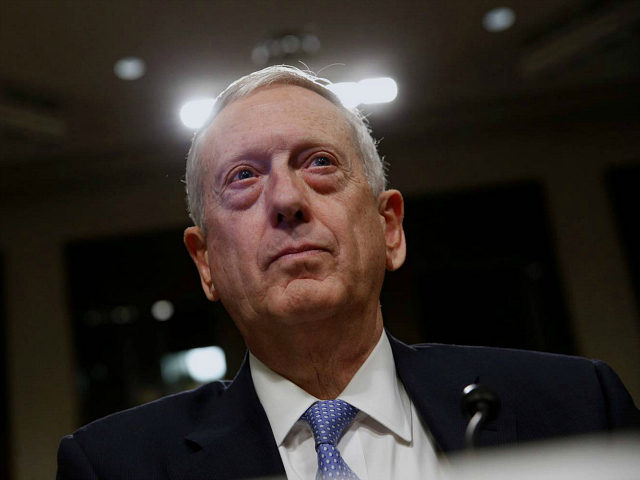U.S. Defense Secretary James Mattis is leading an internal Pentagon review of options to propose to President Donald Trump to intensify the war against the Islamic State (ISIS/ISIL) and ultimately defeat the jihadist group.
While campaigning, the president vowed to ask military leaders to formulate a plan within 30 days of taking office on how to defeat ISIS, which the president alluded to during his inaugural address last Friday.
Citing unnamed defense officials, CNN reports that Trump’s defense secretary, along with Joint Chiefs of Staff Chairman Gen. Joseph Dunford, is preparing to present initial ideas to the president as soon as this week.
The internal Pentagon review on options to combat ISIS will reportedly encompass military advice from Dunford and Gen. Joseph Votel, the chief of U.S. Central Command (CENTCOM), which is in charge of operations in the Middle East and Afghanistan.
President Trump is expected to visit the Pentagon on Friday.
CNN reports:
Officials described two scenarios: One is to “pull” more information from the White House on how it wants to proceed. The other is to “push” to Trump some existing options that Barack Obama never approved when he was in the White House.
The network notes that one key question will be whether Trump will maintain the Obama policy of allowing Syrian dictator Bashar al-Assad to remain in power.
“That could open the door to the US military cooperating and coordinating with the Russian military in the skies over Syria,” an official reportedly indicated.
CNN notes:
Meanwhile, all current military authorities for commanders and troops to undertake operations are still effective and are expected to stay in place for now, a defense official said. Military operations, including airstrikes and training and advising local forces in Iraq and Syria, will remain in effect unless Trump orders changes to current rules governing those operations.
The rules for the use of special operations forces to target, capture or kill so-called high-value targets in counter-terrorism operations will also remain in place for now though they could be altered
Under former President Barack Obama, ISIS expanded to various countries and regions outside its so-called caliphate in Iraq and Syria, including Libya, Saudi Arabia, Yemen, Sinai, Nigeria, Algeria, the Caucuses, and Afghanistan-Pakistan.
The jihadist group is also seeking to officially establish branches in the Philippines, Bangladesh, and Somalia, where it already maintains a presence, the Obama administration acknowledged.
Some analysts, such as former Afghan intelligence chief Rahmatullah Nabil, believe that group’s influence in the Afghanistan-Pakistan region, home to the largest concentration of Islamic terrorist groups, is growing.
American Gen. John Nicholson, the top commander of U.S. and NATO troops in Afghanistan, warned in October 2016 that ISIS is making an effort to establish a “caliphate” on Afghan soil.
Nevertheless, the jihadist group is losing control of territory in Iraq and Syria.
The Iraqi government has announced the liberation of the eastern part of the city of Mosul, which fell into the hands of ISIS in 2014.
Mosul is Iraq’s second-largest city and the jihadist group’s last major stronghold in the country.
The ongoing U.S.-backed offensive to retake Mosul began in mid-October.

COMMENTS
Please let us know if you're having issues with commenting.